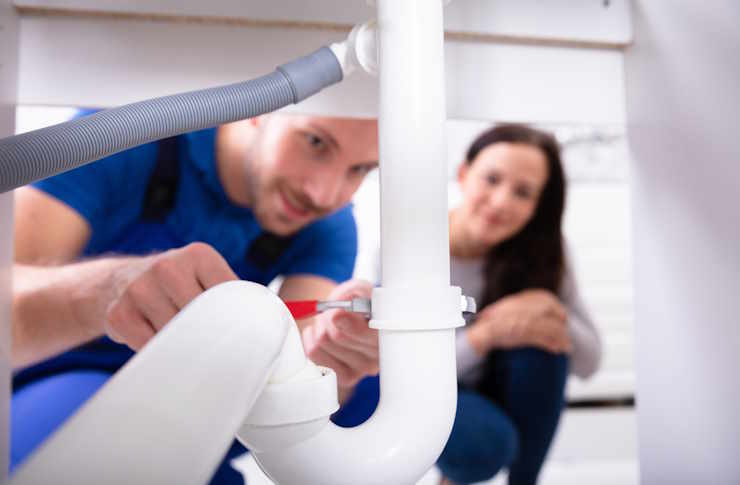Water Conditioners and Their Role in Home Water Treatment
Water conditioners help reduce minerals that can build up in pipes and appliances. Learning how they function, the different types available, and the potential benefits for home maintenance can give a clearer picture of how water quality can be supported in daily life.

Understanding Water Conditioners and Their Benefits
Water conditioners are specialized treatment systems designed to modify the chemical structure of minerals in water, particularly calcium and magnesium ions that cause hardness. Unlike water softeners that remove these minerals entirely, conditioners change their crystalline structure so they cannot form scale deposits on pipes, appliances, and fixtures. This process, known as template-assisted crystallization, allows the minerals to remain in the water while preventing them from adhering to surfaces.
The primary benefits of water conditioners include reduced scale buildup in plumbing systems, improved soap efficiency, and better water flow through pipes. These systems require minimal maintenance compared to salt-based water softeners and do not add sodium to the water supply. Additionally, conditioners help preserve beneficial minerals that contribute to water taste and health benefits while addressing the problematic aspects of hard water.
How Residential Water Conditioners Improve Water Quality
Residential water conditioners employ various technologies to enhance water quality throughout the home. The most common types include electromagnetic conditioners, catalytic media systems, and template-assisted crystallization units. Electromagnetic conditioners use magnetic or electronic fields to alter mineral behavior, while catalytic media systems utilize special materials that change the precipitation characteristics of dissolved minerals.
These systems typically install at the main water line entrance, treating all water entering the home. The conditioning process transforms calcium carbonate crystals from their adhesive calcite form to the non-adhesive aragonite form. This transformation prevents scale formation while maintaining the mineral content that contributes to water taste and nutritional value. The result is water that behaves more like soft water without the drawbacks of traditional salt-based softening systems.
Benefits of Knowing How Water Conditioners Work
Understanding the operational principles of water conditioners enables homeowners to select the most appropriate system for their specific water conditions and household needs. Knowledge of these systems helps in proper maintenance, troubleshooting, and maximizing their effectiveness. Different water conditioner technologies work better with varying levels of water hardness, pH levels, and flow rates.
This understanding also helps distinguish between marketing claims and actual performance capabilities. Some systems combine conditioning with filtration elements, providing comprehensive water treatment solutions. Knowing how these systems function allows homeowners to evaluate whether additional filtration components are necessary based on their water testing results and specific quality concerns.
| System Type | Provider | Technology | Estimated Cost |
|---|---|---|---|
| Electromagnetic | Scalewatcher | Electronic conditioning | $300-$800 |
| Catalytic Media | NuvoH2O | Citric acid cartridges | $500-$1,500 |
| Template Crystallization | HydroFLOW | Signal conditioning | $800-$2,000 |
| Combination Systems | Pelican Water | Multi-stage conditioning | $1,200-$3,000 |
Prices, rates, or cost estimates mentioned in this article are based on the latest available information but may change over time. Independent research is advised before making financial decisions.
Water conditioners offer several advantages over traditional water treatment methods, particularly for households seeking to address hard water issues without removing beneficial minerals. These systems provide a middle ground between untreated hard water and completely softened water, maintaining mineral content while preventing scale-related problems. The technology continues to evolve, with newer systems offering improved efficiency and longer-lasting results.
The effectiveness of water conditioners varies based on water chemistry, system design, and installation quality. Professional water testing helps determine whether conditioning technology will adequately address specific water quality issues or if additional treatment methods are necessary. Some extremely hard water conditions may require traditional softening methods, while others benefit significantly from conditioning approaches.
Modern water conditioners integrate well with existing plumbing systems and other water treatment equipment. Many units operate without electricity, using the natural flow of water to power the conditioning process. This makes them suitable for various installation scenarios and reduces ongoing operational costs compared to systems requiring constant power or regular salt additions.
Water conditioners represent an important category of residential water treatment systems that address mineral-related water quality issues while preserving beneficial aspects of natural water composition. These systems offer homeowners an alternative to traditional water softening that eliminates many drawbacks associated with salt-based treatment methods. Understanding their operation, benefits, and limitations enables informed decision-making about home water treatment solutions.




